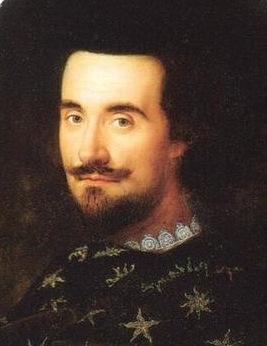On this date in 1583, Edward Herbert, “the father of English deism,” was born in County Shropshire. His father was the the sheriff of Montgomeryshire and a member of Parliament. Herbert studied at University College-Oxford from 1595 to 1600 (marrying his cousin Mary in 1599). In 1603 he was knighted by King James I. He was appointed ambassador to France in 1619 and received Irish peerage in 1624.
In 1629, Charles I raised him to the English peerage as Lord Herbert of Cherbury. Towards the end of his life, Herbert chose to side with Parliament during the English Civil War so that he could keep his library; he did not live to see the monarchy restored. Herbert left behind much diverse writing, including a light-hearted autobiography, a history of the reign of Henry VIII, a collection of verses and a collection of lute music he composed. His philosophical works, metaphysical or religious, included De veritate (On Truth) and Religio laici (Religion of the Laity).
Herbert is considered to be the father of English deism and a founder of the field of comparative religion. According to R.D. Bedford’s The Defence of Truth (1979), Herbert was strongly influenced by Continental deists, atheists and others of a rationalistic bent who were not widely read in England in the 17th century. He was interested in finding a rational form of religion instead of a revealed one. In his De religione gentium (Pagan Religions), published posthumously in 1663, he discussed what he saw as the five important propositions common to pre-Christian and modern religions:
“I. That there is one Supreme God. II. That he ought to be worshipped. III. That virtue and piety are the chief parts of divine worship. IV. That we ought to be sorry for our sins, and repent of them. V. That divine goodness doth dispense rewards and punishments both in this life and after it.” He died at age 65 in London. (D. 1648)

